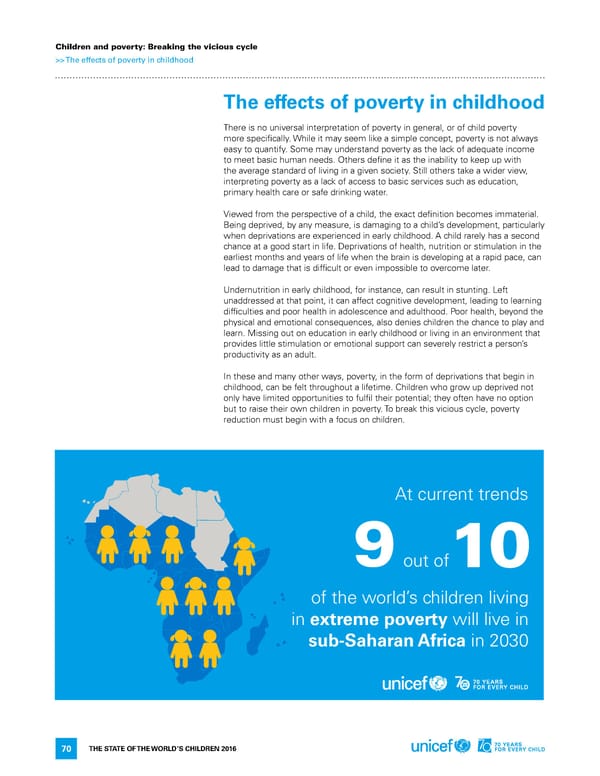Children and poverty: Breaking the vicious cycle >> The effects of poverty in childhood The effects of poverty in childhood There is no universal interpretation of poverty in general, or of child poverty more specifically. While it may seem like a simple concept, poverty is not always easy to quantify. Some may understand poverty as the lack of adequate income to meet basic human needs. others define it as the inability to keep up with the average standard of living in a given society. Still others take a wider view, interpreting poverty as a lack of access to basic services such as education, primary health care or safe drinking water. Viewed from the perspective of a child, the exact definition becomes immaterial. Being deprived, by any measure, is damaging to a child’s development, particularly when deprivations are experienced in early childhood. a child rarely has a second chance at a good start in life. deprivations of health, nutrition or stimulation in the earliest months and years of life when the brain is developing at a rapid pace, can lead to damage that is difficult or even impossible to overcome later. Undernutrition in early childhood, for instance, can result in stunting. left unaddressed at that point, it can affect cognitive development, leading to learning difficulties and poor health in adolescence and adulthood. Poor health, beyond the physical and emotional consequences, also denies children the chance to play and learn. Missing out on education in early childhood or living in an environment that provides little stimulation or emotional support can severely restrict a person’s productivity as an adult. in these and many other ways, poverty, in the form of deprivations that begin in childhood, can be felt throughout a lifetime. Children who grow up deprived not only have limited opportunities to fulfil their potential; they often have no option but to raise their own children in poverty. To break this vicious cycle, poverty reduction must begin with a focus on children. At current trends 9out of 10 of the world’s children living in extreme poverty will live in sub-Saharan Africa in 2030 The STaTe of The World’S Children 2016 70
 70 Years for Every Child Page 86 Page 88
70 Years for Every Child Page 86 Page 88